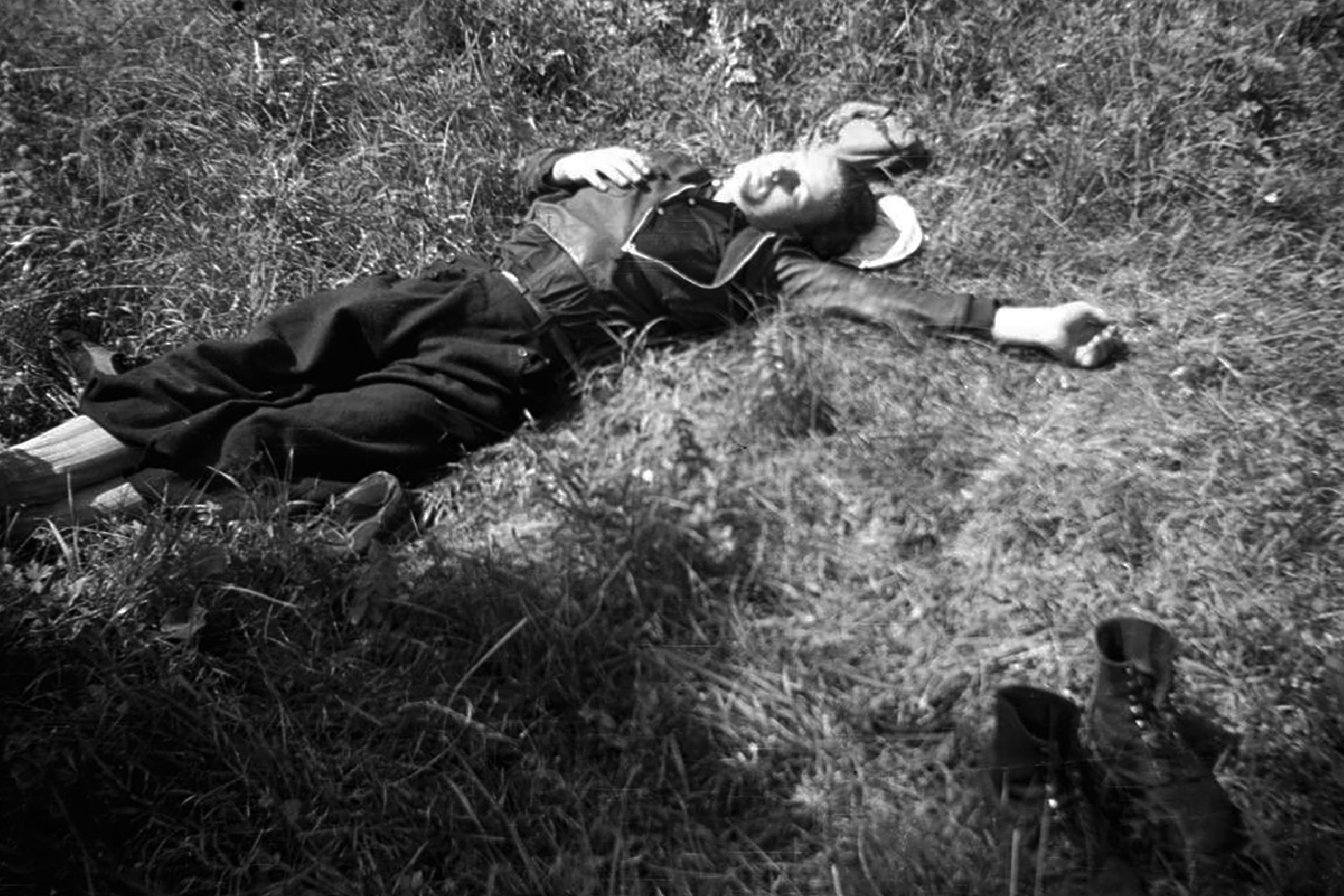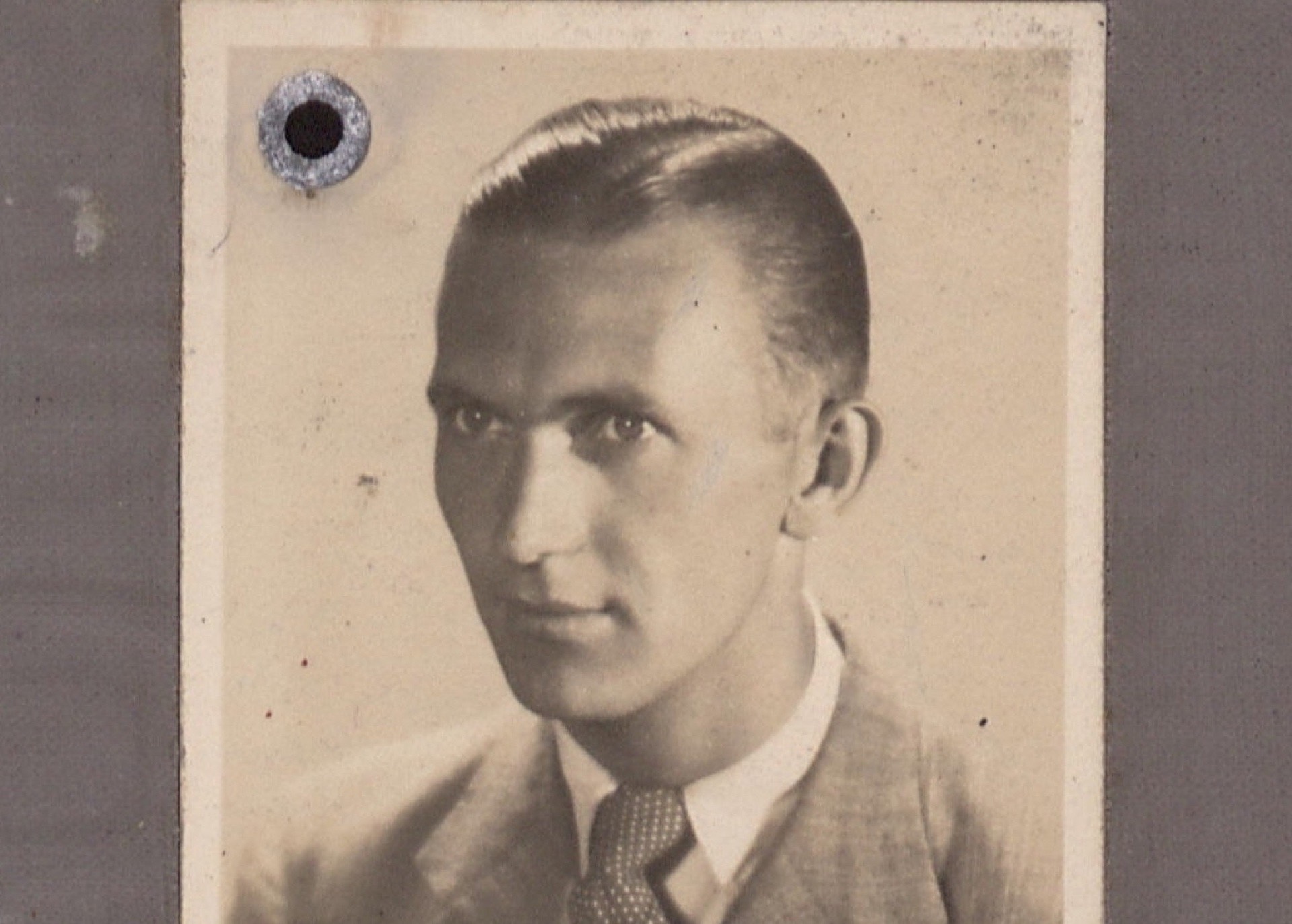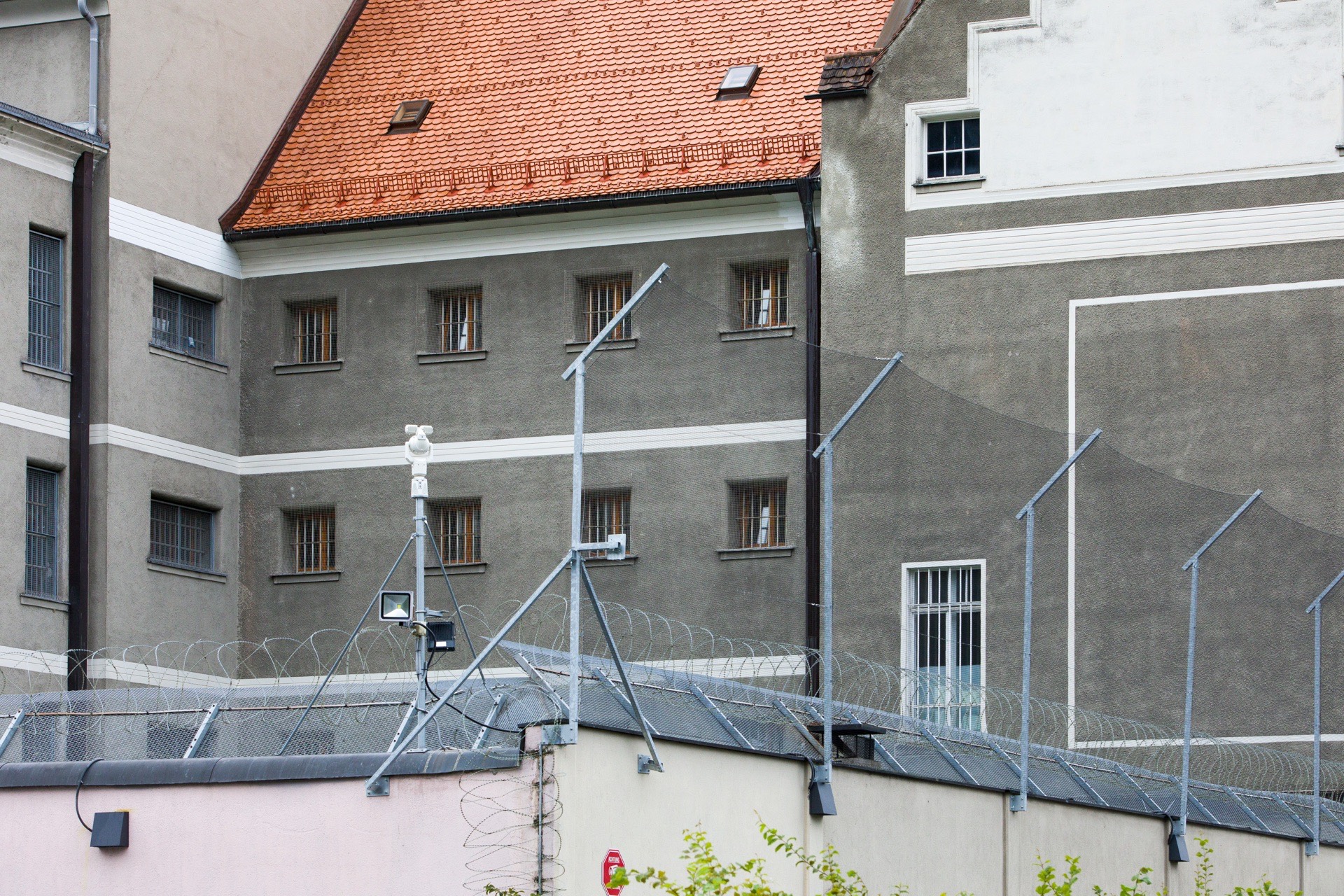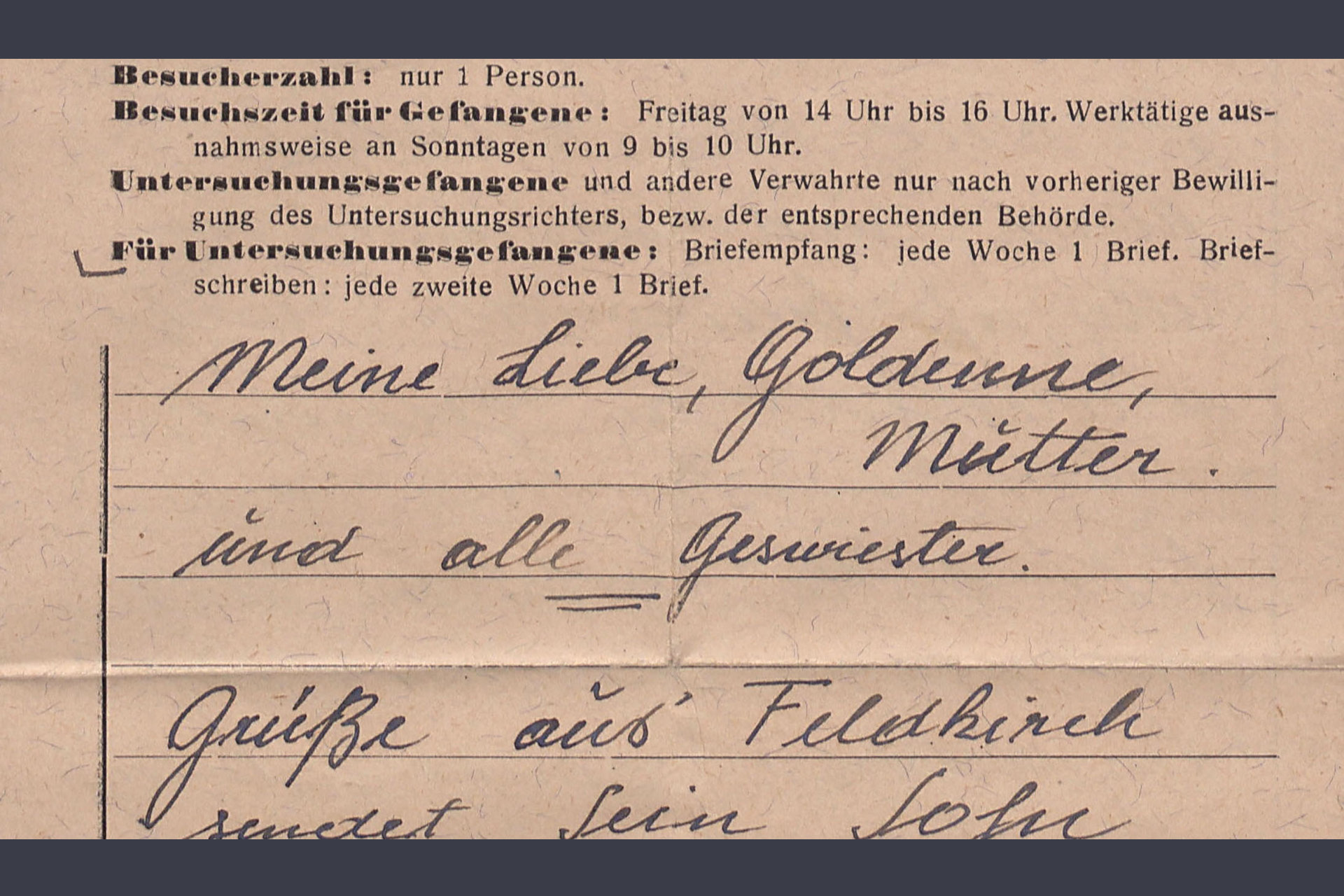Friedrich Frolik> August 25, 1942
35 Friedrich Frolik
“Golden mother and all brothers and sisters. Greetings from Feldkirch” The Czech foreign worker Friedrich Frolik and the Nazi judiciary
Illspitz, August 25, 1942
Friedrich Frolik and his friend Franz Irmisch, two young Czechs working as drivers in Linz, are arrested in a grove at the Illdamm – near the mouth of the river into the Rhine. Presumably they were trying to escape to Switzerland, but did not know where the border on the Rhine was. Frolik happens to get into a cell with multiple occupants, whose inmates break out of prison a few days later. Frolik tries to escape again across the Rhine with two of his fellow prisoners. And again he is arrested. When he writes from prison to his mother in Budweis on September 23, in broken German, he does not yet suspect that he will never see her again:
“My beloved, golden mother and all siblings,
Greetings from Feldkirch sends your son Fritz. Mom, I am healthy and have all good, how long I will stay here I don’t know. I beg you please write at once, what’s going on in our home country and are you all healthy? Everybody? What is everybody doing?
Milousch, Jirka, Pepi, Wenzl, if holydays then I send greetings to everybody. And Heinrich, Ulrich, and sister in law Nelly, I can’t expect to see you all again, at home.
Dear Mom, could you go to the tailor, on Linzer Street, the winter coat in the makin with tailor Miklas, if ready I would take it home at once and a jacket, and if you pay, we could make the balance as soon as I come. (…)
Now please also greet my girl Anni and got to here and tell her, what’s going on with me, that I am in detention on remand in Feldkirch, and I will come after the investigation. Please write back in German to the adress on the envelope. I will write to you every 14 days. And you write to me every week, yes?
Now many regards from me, and Mom I send you many kisses. And for Jirka and Milaus as well. Please buy a flower for me on the cemetery for the grave of my father.
Good by Fritz
and Anni also can write to me yes?”[1]
Instead of being sent to Budweis, the letter arrives at the so called People's Court in Berlin on September 26 and is returned from there to Feldkirch. Where it remains in the files.
On May 19, 1943, Frolik is found guilty by the Special Court at the Feldkirch District Court as a violent criminal, as well as for passport offenses and theft, and is sentenced to death. The verdict catches him completely off guard. His horror even moves the judges, who advocate a plea for clemency from him. In vain: on July 2, 1943, he is executed with the guillotine in Munich-Stadelheim prison.
Recommended reading:
Alfons Dür, Unerhörter Mut. Eine Liebe in der Zeit des Rassenwahns. Innsbruck 2012
[1] Quoted from Alfons Dür, Unerhörter Mut. Eine Liebe in der Zeit des Rassenwahns. Innsbruck 2012, p. 161f.
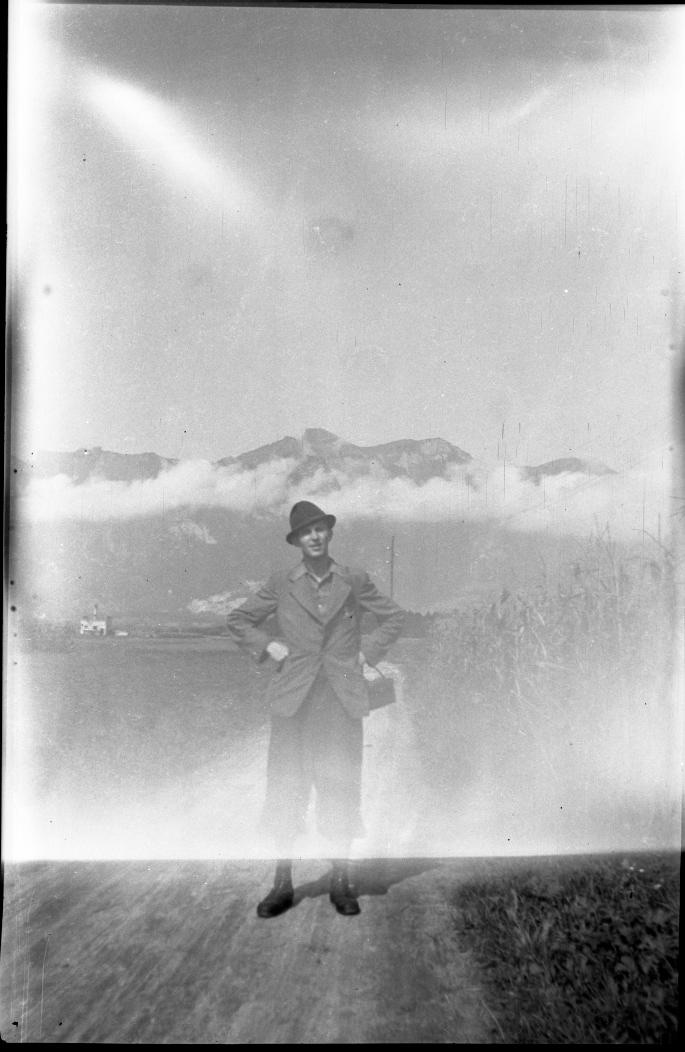
Friedrich Frolik, Feldkirch 1942
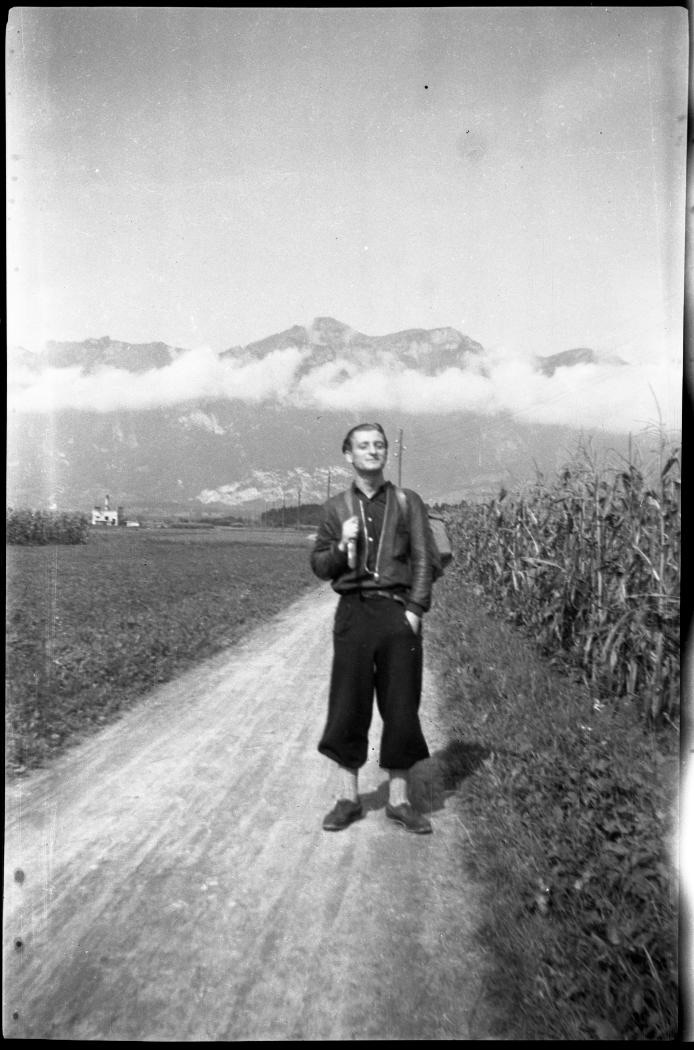
Franz Irmisch, Feldkirch 1942
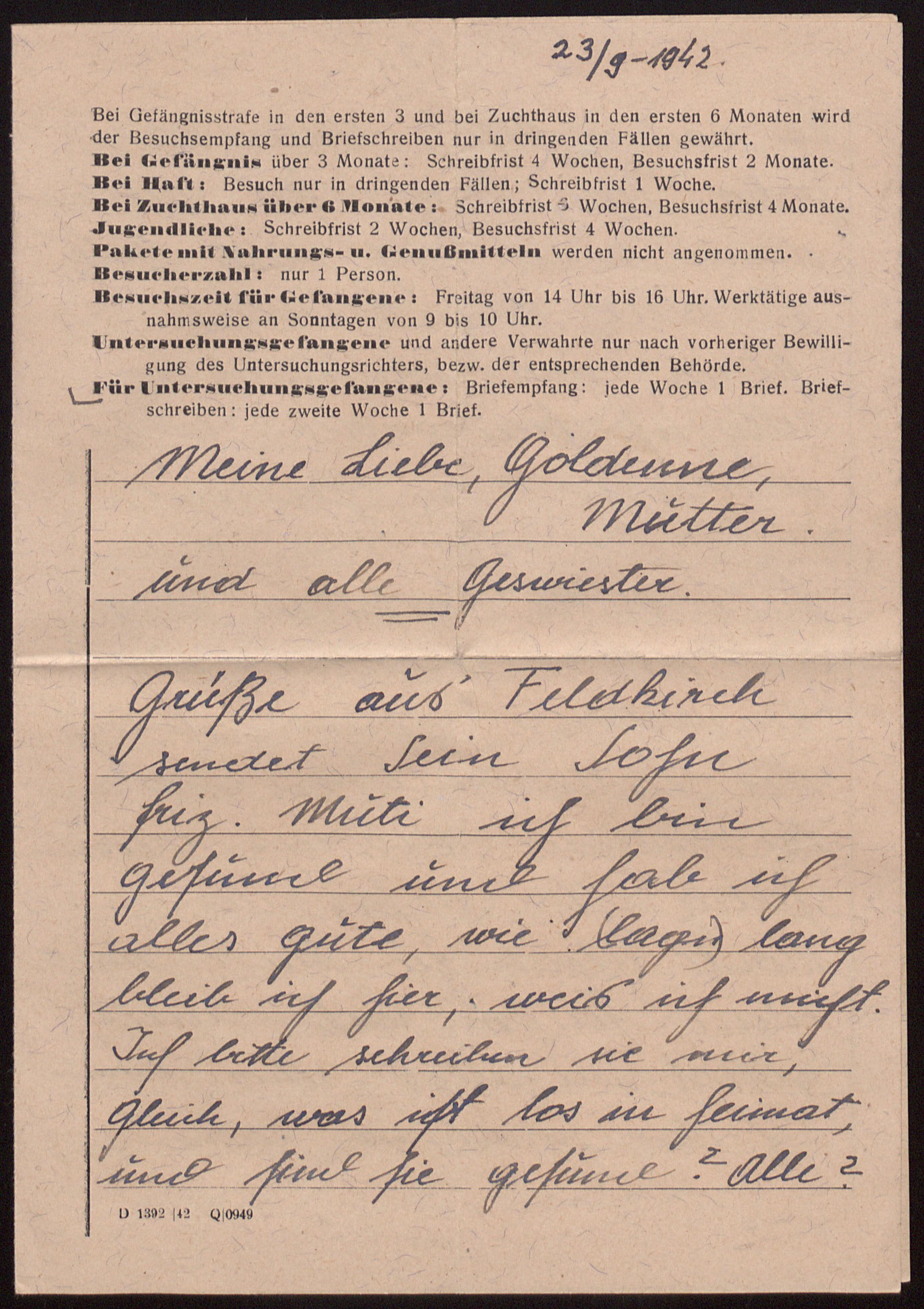
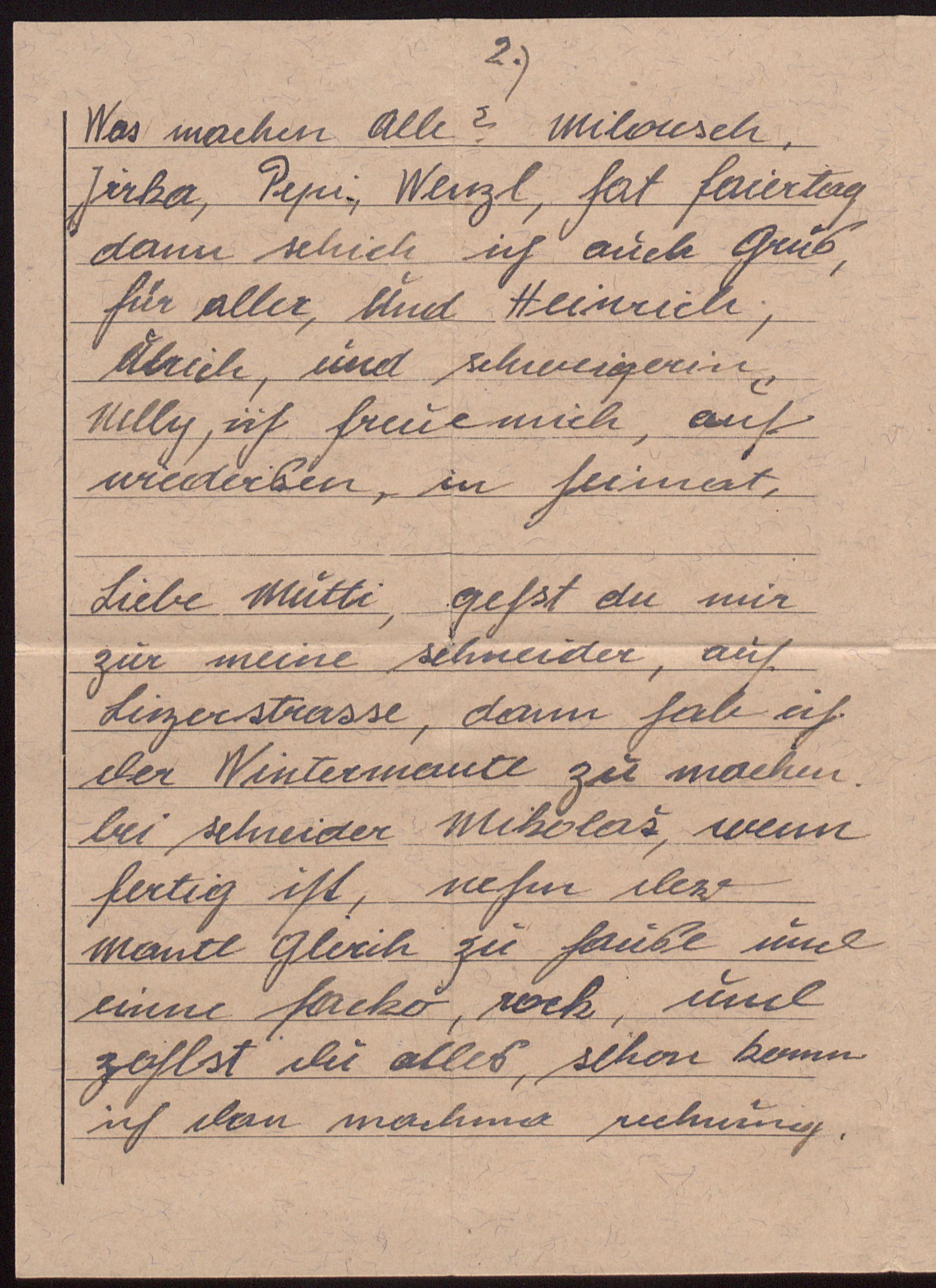
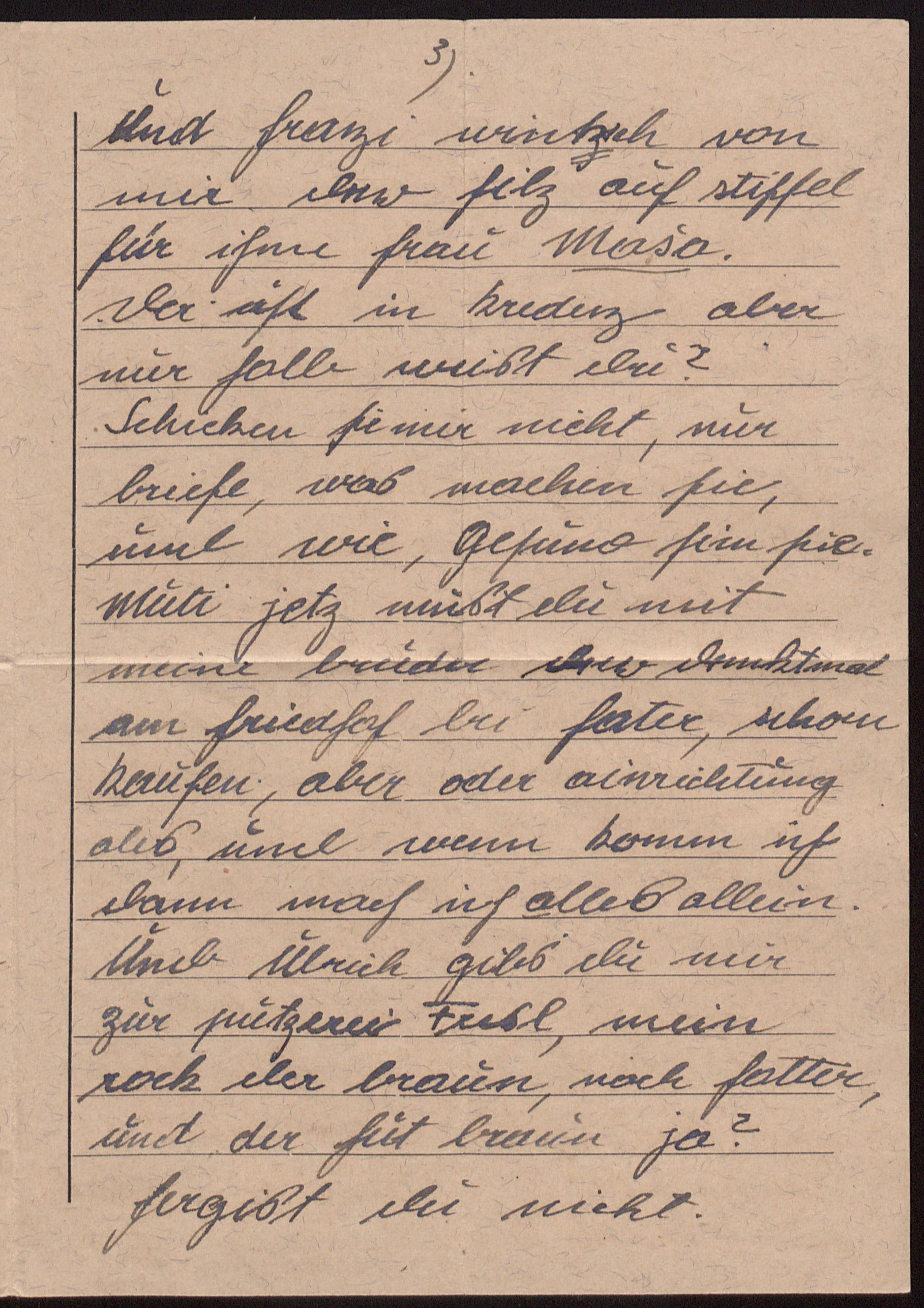
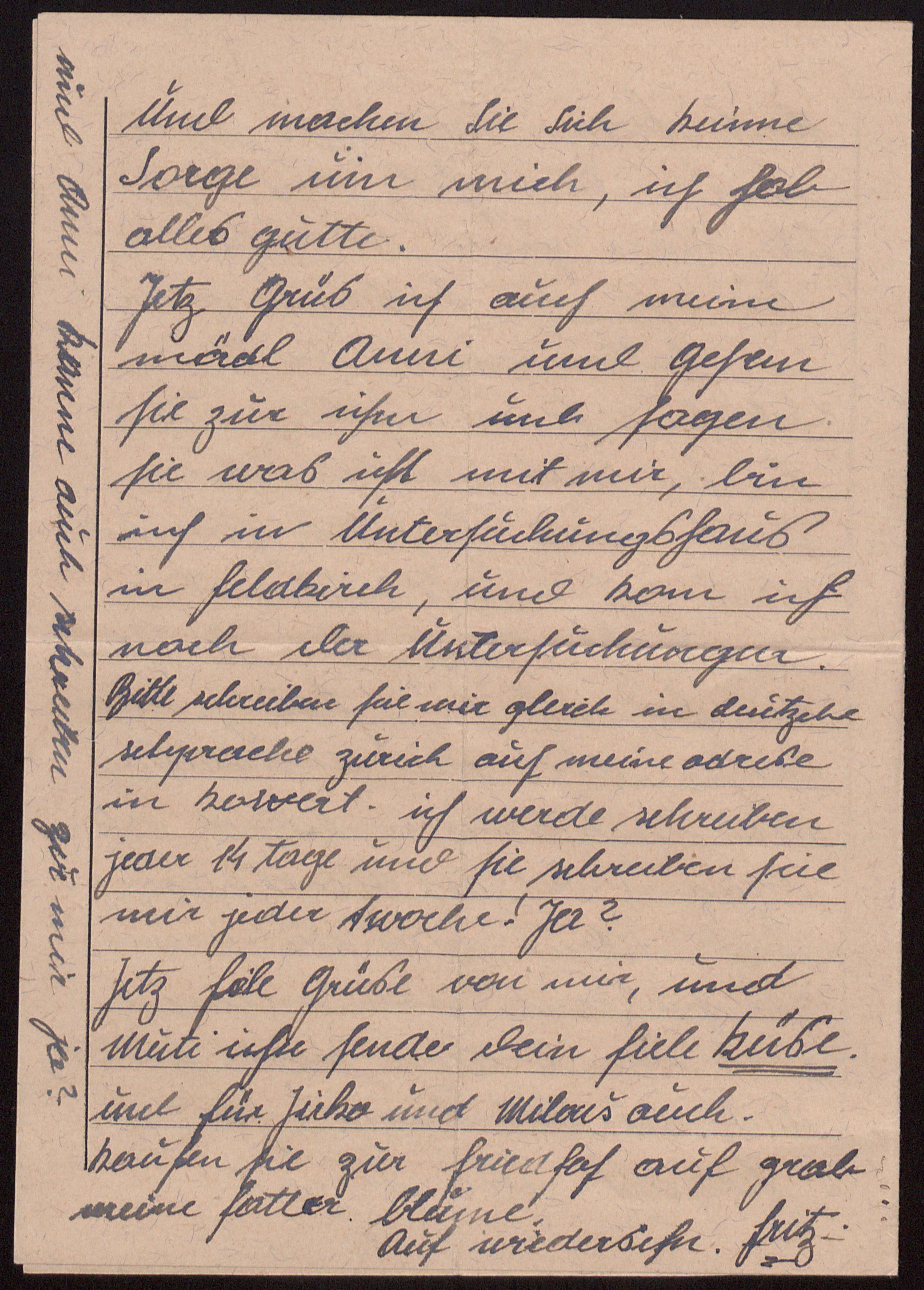
Letter from Friedrich Frolik to his mother, September 23, 1942
35 Friedrich Frolik
“Golden mother and all brothers and sisters. Greetings from Feldkirch” The Czech foreign worker Friedrich Frolik and the Nazi judiciary
Illspitz, August 25, 1942
Friedrich Frolik and his friend Franz Irmisch, two young Czechs working as drivers in Linz, are arrested in a grove at the Illdamm – near the mouth of the river into the Rhine. Presumably they were trying to escape to Switzerland, but did not know where the border on the Rhine was. Frolik happens to get into a cell with multiple occupants, whose inmates break out of prison a few days later. Frolik tries to escape again across the Rhine with two of his fellow prisoners. And again he is arrested. When he writes from prison to his mother in Budweis on September 23, in broken German, he does not yet suspect that he will never see her again:
“My beloved, golden mother and all siblings,
Greetings from Feldkirch sends your son Fritz. Mom, I am healthy and have all good, how long I will stay here I don’t know. I beg you please write at once, what’s going on in our home country and are you all healthy? Everybody? What is everybody doing?
Milousch, Jirka, Pepi, Wenzl, if holydays then I send greetings to everybody. And Heinrich, Ulrich, and sister in law Nelly, I can’t expect to see you all again, at home.
Dear Mom, could you go to the tailor, on Linzer Street, the winter coat in the makin with tailor Miklas, if ready I would take it home at once and a jacket, and if you pay, we could make the balance as soon as I come. (…)
Now please also greet my girl Anni and got to here and tell her, what’s going on with me, that I am in detention on remand in Feldkirch, and I will come after the investigation. Please write back in German to the adress on the envelope. I will write to you every 14 days. And you write to me every week, yes?
Now many regards from me, and Mom I send you many kisses. And for Jirka and Milaus as well. Please buy a flower for me on the cemetery for the grave of my father.
Good by Fritz
and Anni also can write to me yes?”[1]
Instead of being sent to Budweis, the letter arrives at the so called People's Court in Berlin on September 26 and is returned from there to Feldkirch. Where it remains in the files.
On May 19, 1943, Frolik is found guilty by the Special Court at the Feldkirch District Court as a violent criminal, as well as for passport offenses and theft, and is sentenced to death. The verdict catches him completely off guard. His horror even moves the judges, who advocate a plea for clemency from him. In vain: on July 2, 1943, he is executed with the guillotine in Munich-Stadelheim prison.
Recommended reading:
Alfons Dür, Unerhörter Mut. Eine Liebe in der Zeit des Rassenwahns. Innsbruck 2012
[1] Quoted from Alfons Dür, Unerhörter Mut. Eine Liebe in der Zeit des Rassenwahns. Innsbruck 2012, p. 161f.

Friedrich Frolik, Feldkirch 1942

Franz Irmisch, Feldkirch 1942



